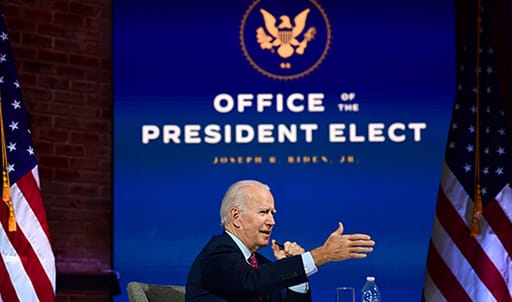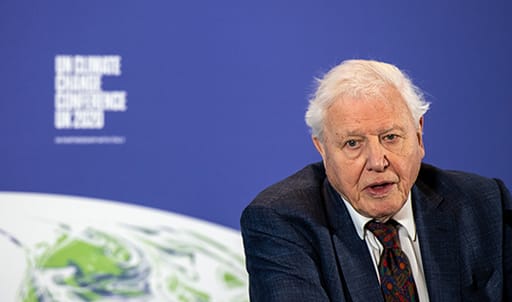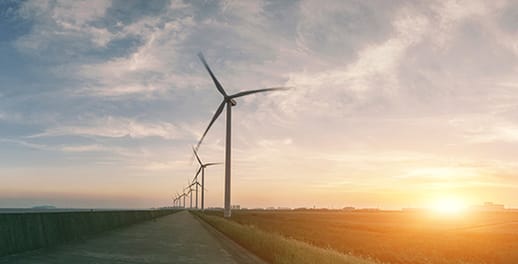COP26 should have seen the gathering in early November of more than 200 nations to address the pressing issues facing our planet’s sustainability. However, the conference was postponed for an entire year to allow world leaders to come to terms with the Covid-19 pandemic and, importantly, focus on America.
The United States plays a pivotal role in leading the global charge in defence of the planet. As the second-largest producer of greenhouse gas emissions after China, the US needs to commit to net-zero. Otherwise, quite simply, the world will not meet its target of carbon neutrality by 2050.

This commitment needs an administration in the USA that engages actively and openly with the scientific community, and earnestly considers the long-term sustainability of its decisions on its constituents locally as well as the world at large. Donald Trump and Joe Biden were polarised on this issue.
Now it is clear that the health of the economy and the future of the planet will require the same cultural shift that propelled Biden to power, to take swift action delivering the investment that was promised to drive society forward. But, is this clarity worth a whole year’s delay?
As encouraging as these developments are, the planet cannot stand idly by and wait another year for COP26 to convene to allow us to continue these critical global dialogues. We have already lost vital decades to indifference and lethargy towards the climate action agenda and issues of sustainability.

The stark extent of the destruction caused by this indifference is emphasised in Sir David Attenborough’s latest documentary, A Life On Our Planet. Here Attenborough eloquently captures the very dire outlook for the planet, the climate crisis and global environmental decay.
Central to Attenborough’s argument is the threat posed to our planet because of population growth and the concept of overpopulation. A similar view is expressed by Lord Mark Malloch-Brown, a non-executive at Investec, and it highlights the dislocation between the “haves” and the “have-nots”. A report compiled by Oxfam and the Stockholm Environment says the wealthiest 1% of the world’s population is responsible for more than double the emissions of the poorest 50%. Largely driven by overconsumption by a wealthy minority, the impact of climate devastation is felt more acutely by the most marginalised of society.
This raises the question about whether decarbonisation is a first world luxury. Attenborough opines that to address climate change, we need to increase the economic prospects of the overall population. That would surely spread the burden evenly. However, looking at the situation closer to home, what is the role of the emerging world in ensuring we successfully achieve a two-degree society while, at the same time, driving economic growth and prosperity? Is it even possible?
In short, it is not only possible, but non-negotiable. It will take drastic action and bold decisions, but once again I am heartened by Biden’s victory. Biden’s manifesto recognised a connection between climate action, jobs and economic growth, as well as reduced inequality. It is encouraging that he acknowledges the 17 Sustainable Development Goals identified by the UN as crucial for a better world for all. His proposals include significant green investments and ambitious carbon commitments. When it comes to the most contentious issue of all, fossil fuels, Biden is pro the transition to a low-carbon economy.
Returning to our own dilemma in South Africa — where fossil fuels dominate the primary energy supply — drastic action and bold decisions need to become the order of the day. As a nation we need to shift from an economy dependent on fossil fuels to one powered by renewables and clean energy.
Thankfully, we are starting to see evidence of this as municipalities and big business are being given the go-ahead to self-generate renewable electricity. It is vital that actions such as these continue during our one-year wait for COP26, 2021.
Not everything has been delayed, however. Countries are required to submit their Nationally Determined Contribution (NDC) reports — detailing how they plan to reduce their emissions of greenhouse gases, by the end of 2020. Unfortunately, even this looks unlikely with only 15 countries to date, representing 4.6% of global emissions, having submitted a 2020 NDC.
Another commitment due by the end of 2020 is climate change finance from developed countries to developing countries to tackle climate impacts. According to a recent report by the OECD, climate finance to developing countries has increased, but was still $20-billion short of the 2020 goal of mobilising $100-billion per year committed. Clearly, this will have fallen further down developed countries’ agendas with survival mode required to deal with Covid-19.
As we move beyond the official start date of the COP conference that should have been, at least the countdown to the 2021 edition begins. I just hope that out of this crazy year, Covid-19 has been the wake-up call needed for anyone who has yet to fully grasp the severity of our collective position as a planet.
Global unity on climate change is fundamental and the actions we take every day will have a profound impact on whether the world is able to prevent an ecological catastrophe. The planet cannot wait another year.
This article originally appeared in Daily Maverick.




